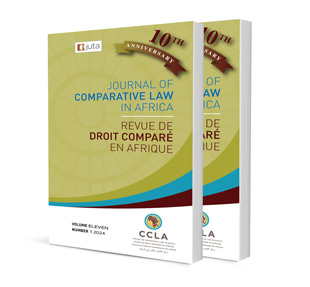Navigating the Complex Terrain of Competition Law Enforcement in Nigeria’s Petroleum Sector: an Examination of the Nigerian National Petroleum Company Limited (NNPCL)

Navigating the Complex Terrain of Competition Law Enforcement in Nigeria’s Petroleum Sector: an Examination of the Nigerian National Petroleum Company Limited (NNPCL)
Author: Laura Ani
ISSN: 2521-2605
Affiliations: Senior Research Fellow, Nigerian Institute of Advanced Legal Studies (NIALS)
Source: Journal of Comparative Law in Africa, Volume 11 Issue 2, p. 109 – 141
https://doi.org/10.47348/JCLA/v11/i2a4
Abstract
The convergence of the Petroleum Industry Act of 2021 and the Federal Competition and Consumer Protection Act of 2018 offers a unique opportunity to reshape the Nigerian Oil and Gas sector. However, the true potential of these legislative reforms can only be realised through vigilant enforcement. This article comprehensively analyses the critical role of competition law in fostering a dynamic and competitive energy sector in Nigeria. By immersing into the labyrinth of competition law, this article distils the challenges and opportunities arising from the convergence of the Petroleum Industry Act and the Federal Competition and Consumer Protection Act. Additionally, the article expounds upon how a proactive stance by the NNPCL, within the ambit of competition compliance, can infuse dynamism into market dynamics and, ultimately, rebound to the collective economic well-being of Nigeria. The methodology involves a desktop review of laws and regulations pertinent to competition and petroleum. The aim is to assess the influence of these laws on market competitiveness, consumer welfare, and economic efficiency within the Nigerian petroleum industry. The article finds that though the dominance of the NNPCL is not problematic per se, the ownership structure of the NNPCL is an impetus for the government to undesirably influence the entity’s autonomy to compete like other undertakings. If left unchecked, it could potentially affect smaller private competitors in the industry. The article recommends more robust regulatory compliance to ensure fair competition and prevent the abuse of the NNPCLs dominant position.